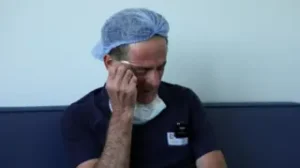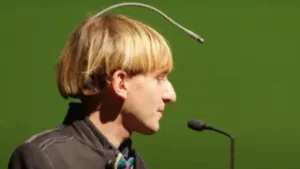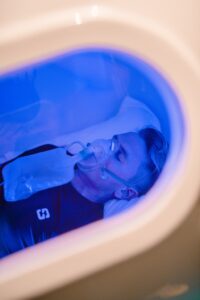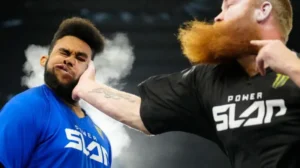Health warning over face-slap fighting
Doctors worry about brain damage from a new type of championship fighting that has grown in popularity.
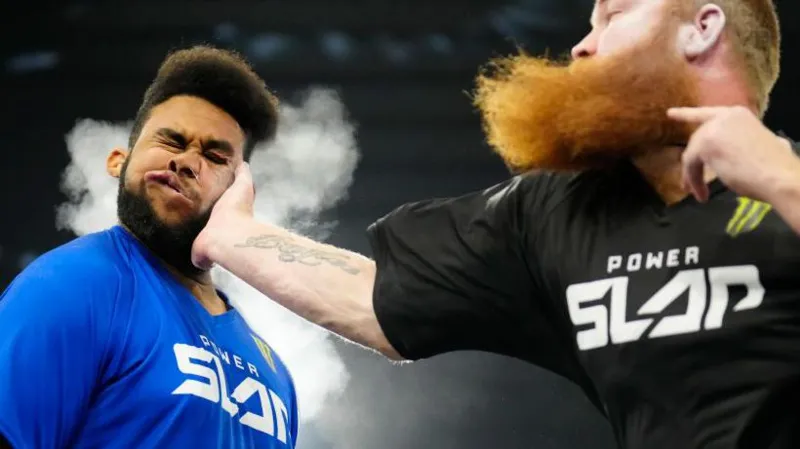
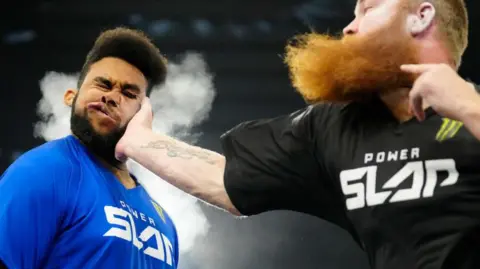 Icon Sportswire / Contributor
Icon Sportswire / ContributorDoctors are worried a combat sport called slap fighting, watched by millions online and gaining in popularity, is causing serious brain damage.
Competitors face off and take turns to deliver bare, full-force, open-handed strikes to the cheek.
To assess the possible harm, medics screened videos of tournaments and have now written a warning letter in a leading journal, JAMA Surgery, about their findings.
Unlike boxing, no head gear is allowed and defenders cannot duck to avoid blows. Even flinching is banned.
Opponents are scored based on the amount of damage they inflict and how well they cope with getting slapped themselves.
The sport is popular in the US, but other countries, including the UK, are in on the action.
Next month, Liverpool will hold what is being billed as the first-ever British Heavyweight Slap Fight Competition.
The “adrenaline-pumping night like no other” will see Louis “The Razor” Robinson go up against Dom “The Juggernaut” Sorby.
Experts at the University of Pittsburgh School of Medicine in the US say theirs is the only academic study to quantifiably assess the possible dangers.
It is not the first warning public about the sport though.
 Getty Images/Gaelen Morse
Getty Images/Gaelen MorseThe alarm was raised in 2021 after Polish slap fighter Artur Walczak suffered a brain bleed during a match in which he was knocked out and lost consciousness.
Despite hospital treatment, he died weeks later of multiple organ failure linked to his head injury.
And in March 2023, retired female fighter Kortney Olson shared her story of slap fighting with BuzzFeed News.
During an exhibition for contestants of a now-cancelled cable network show, Power Slap, Olsen is struck by competitor Sheena Bathory and falls, her eyes visibly rolling back as the crowd gasps.
Olsen said in an interview that she was concerned about memory lapses both during the match, and months after: “After I regained consciousness, I stood back up to get to the table and reset, but lost consciousness again and wound up doing a forward roll. I don’t have any recollection of doing a forward roll.”
Lead authors of the medical study, Dr Raj Swaroop Lavadi and Dr Nitin Agarwal, say while slap fighting “might be entertaining to watch”, as medical professionals, “we found some aspects of the competitions to be quite concerning”.
According to their analysis of 78 fights between 56 contestants and involving 333 slaps:
- more than half of the participants had visible signs of concussion
- many had signs of impaired movement following a hit or had a blank or vacant stare
- some were knocked down had some trouble getting back up
Many of the fights they observed were in the US, where big events have attracted stars like Arnold Schwarzenegger and Logan Paul, to watch and comment from the sideline.
When asked “ringside” if he had any advice to the two female contenders, Mr Schwarzenegger said: “No, I’m just learning right now. This is the first time I’ve seen anything like this live.”
Such events are often streamed on YouTube.
What is concussion?
Concussion is traumatic injury that can happen with a blow to the head as the brain moves inside the hard skull.
There can be short-term headaches, blurred vision, vomiting, slurred speech, drowsiness or confusion and memory, balance, mood or sleep problems.
A single concussion will not usually cause permanent damage, but repeated ones over a lifetime can be extremely serious.
Repeated head blows can cause something called chronic traumatic encephalopathy, or CTE, which gets worse over time and can lead to dementia.
Many contact sports, like rugby, have concussion protocols and guidelines to help protect players.
Fifa and the World Health Organization have launched a new “Suspect and Protect” awareness campaign to increase recognition among footballers.
Fifa president Gianni Infantino said: “Concussion is a brain injury and should always be taken seriously.
“By knowing the signs, being aware of the risks and treating concussion correctly, you can help to put player safety first.”
Anyone who has an injury affecting the head, face, neck or body should get a medical check for concussion symptoms, which can take a few days to appear.
One of the Pittsburgh Medical team, Dr Joseph Maroon, co-developed the rigorous concussion checks used by the US National Football League, National Hockey League and Major League Baseball to ensure players are fit to keep playing.
He told BBC News: “In the past, it was thought that you didn’t have a concussion unless you had loss of consciousness. We now know that 90% occur in the absence of loss of consciousness.”
He said slap fighting posed an obvious risk and that guidance was needed.
“The worst possible thing to do in terms of possibly incurring brain damage is to return to a contact sport before the brain has completely recovered… the brain is more susceptible to damage with a lesser force,” he said.
“So for an individual to have experienced concussion and then stand up and get hit again, it’s putting the athlete at increased risk.”


